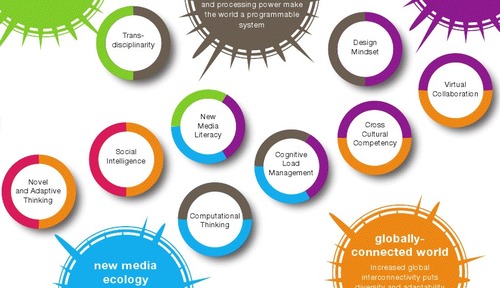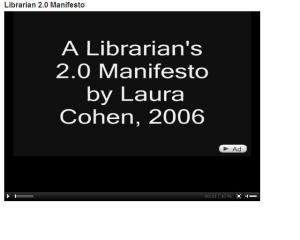Via Scoop.it – Future Trends in Libraries
Excellent scoop on Scoop.it by Future Trends in Libraries curated by nickcarman. He states:
Extremely valuable skills for Information Professionals of the future… The Institute for the Future and the University of Phoenix have teamed up to produce, this past spring, an interesting report entitled Future Work Skills 2020. By looking at the set of emerging skills that this research identifies as vital for future workers, I can’t avoid but recognize the very skillset needed by any professional curator or newsmaster. It should only come as a limited surprise to realize that in an information economy, the most valuable skills are those that can harness that primary resource, “information”, in new, and immediately useful ways. And being the nature of information like water, which can adapt and flow depending on context, the task of the curator is one of seeing beyond the water, to the unique rare fish swimming through it. The curator’s key talent being the one of recognizing that depending on who you are fishing for, the kind of fish you and other curators could see within the same water pool, may be very different.
Here the skills that information-fishermen of the future will need the most: 1) Sense-making: ability to determine the deeper meaning or significance of what is being expressed; 2) Social intelligence: ability to connect to others in a deep and direct way, to sense and stimulate reactions and desired interactions; 3) Novel and adaptive thinking: proficiency at thinking and coming up with solutions and responses beyond that which is rote or rule-based; 4) Cross-cultural competency: ability to operate in different cultural settings; 5) Computational thinking: ability to translate vast amounts of data into abstract concepts and to understand data-based reasoning; 6) New media literacy: ability to critically assess and develop content that uses new media forms, and to leverage these media for persuasive communication; 7) Transdisciplinarity: literacy in and ability to understand concepts across multiple disciplines; 8) Design mindset: ability to represent and develop tasks and work processes for desired outcomes; 9) Cognitive load management: ability to discriminate and filter information for importance, and to understand how to maximize cognitive functioning using a variety of tools and techniques; 10) Virtual collaboration: ability to work productively, drive engagement, and demonstrate presence as a member of a virtual team.
Executive Summary of the Report










